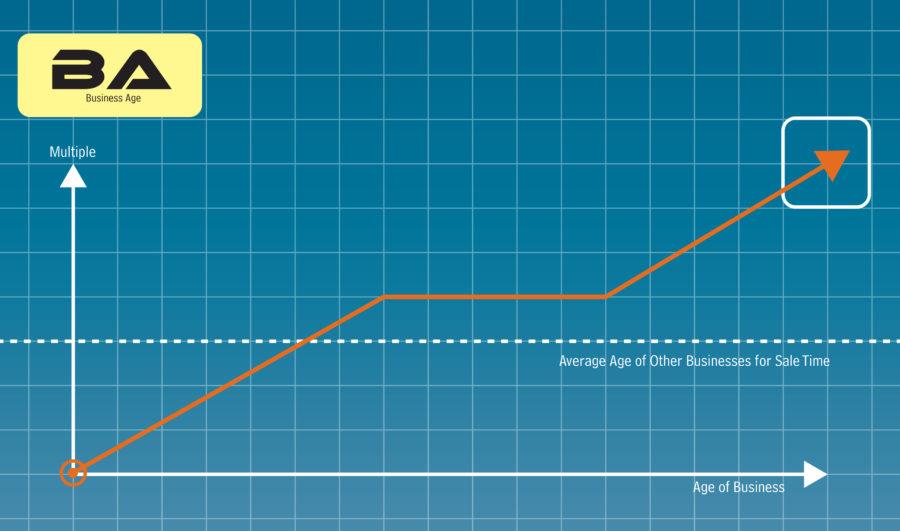Table of Contents
- Understanding the Fundamentals of Website Flipping
- Identifying Profitable Niches for Your Website Portfolio
- Essential Tools and Resources for Effective Website Flipping
- Evaluating Website Value and Potential for Growth
- Strategies for Successful Marketing and Selling of Websites
- Q&A
- The Way Forward


Understanding the Fundamentals of Website Flipping
Website flipping is an exciting venture that blends creativity with strategic planning. At its core, it involves buying, improving, and selling websites for a profit. The process typically starts with identifying websites that have potential but may require upgrades or enhanced marketing strategies. It’s essential to conduct thorough research on the website’s current performance, including traffic trends, revenue streams, and overall marketability. By understanding these fundamentals, newcomers can spot valuable opportunities and avoid common pitfalls.
To effectively flip a website, consider focusing on key areas that can significantly increase its value:
- Content Quality: High-quality, engaging content attracts visitors and keeps them coming back.
- SEO Optimization: Properly optimizing the site for search engines boosts visibility and traffic.
- User Experience: Enhancing the user interface improves accessibility and satisfaction, leading to better engagement.
- Monetization Strategies: Exploring different ways to generate income, such as affiliate marketing or ad placements, can enhance profitability.
Understanding the financial aspects is equally crucial. A simple table that outlines expected costs and prospective earnings can help new flippers set realistic goals and track their progress:
| Expense Category | Estimated Cost | Potential Earnings |
|---|---|---|
| Website Purchase | $1,000 – $5,000 | |
| Upgrades & SEO | $500 - $2,000 | |
| Marketing & Advertising | $300 – $1,000 | |
| Total Investment | $1,800 – $8,000 | $5,000 – $15,000 |
Identifying Profitable Niches for Your Website Portfolio
When venturing into website flipping, pinpointing lucrative niches sets the foundation for success. Start by analyzing current market trends, using tools like Google Trends and social media insights to understand what topics are gaining traction. Consider focusing on niches that cater to specific audiences. For instance, wellness, sustainable living, and personal finance are ever-green segments that consistently attract viewers. Additionally, browse platforms like Reddit and niche forums to unearth emerging interests that haven’t yet saturated the market.
Another effective strategy is to evaluate existing websites. Look for niches with high demand but relatively low competition. You can achieve this by checking the Domain Authority (DA) and search engine rankings of similar sites within your targeted niche. If you come across a popular topic with websites struggling to maintain strong SEO metrics, it may be your opportunity to step in. Utilize SEO tools to assess keyword difficulty and search volume, revealing potential prospects that can be optimized for higher rankings and traffic.
Lastly, consider your passions and expertise. Building a website in a niche that resonates with your interests not only brings authenticity but also fuels motivation for the long haul. Ask yourself these questions to narrow down your choices:
- What topics am I passionate about?
- Do I possess specialized knowledge or skills in any area?
- How can I provide unique value or perspective in this niche?
By aligning your chosen niche with personal strengths, you’re more likely to create engaging content and attract a dedicated audience, ultimately leading to a successful website flip.


Essential Tools and Resources for Effective Website Flipping
To successfully flip websites, a variety of tools and resources can significantly enhance your efficiency and decision-making process. Firstly, domain marketplaces are essential for sourcing your initial investments. Platforms like Flippa, Empire Flippers, and SEMRush provide comprehensive listings of websites for sale, complete with metrics and performance data. Browsing these sites allows you to identify undervalued properties that could yield promising returns after implementation of improvements.
Next, optimizing and managing your website requires robust web management tools. Familiarizing yourself with tools such as WordPress, Google Analytics, and Ahrefs can lead to valuable insights into your site’s performance. By employing these tools, you can track visitor behavior, analyze traffic sources, and optimize for SEO—all crucial for increasing the site’s value before resale. Here are a few alternatives to consider:
- SEMrush: For competitive analysis and keyword research.
- Canva: To enhance visual content without a hefty graphic design budget.
- Mailchimp: Effective for email marketing campaigns to boost engagement.
keeping abreast of industry trends is vital for informed decision-making. Subscribing to blogs such as Quick Sprout and Neil Patel’s blog can provide ongoing tips and strategies for effective website flipping. Additionally, engaging in online communities like Reddit or niche-specific forums can facilitate networking and knowledge-sharing with fellow flippers. The collaboration and shared experiences can be invaluable for anyone navigating the competitive landscape of website ownership.


Evaluating Website Value and Potential for Growth
Understanding the value of a website is crucial for anyone looking to flip sites for profit. A website’s value is not solely based on its current income but rather a combination of factors that contribute to its overall potential. Important metrics to consider include traffic trends, domain authority, and niche relevance. High traffic numbers can indicate a site’s potential for growth, but trends reveal whether that traffic is stable, growing, or declining.
When assessing a website’s growth potential, it’s beneficial to review its existing content and user engagement. Key indicators such as average session duration, bounce rate, and return visitor percentage can provide insights into how well the audience connects with the site’s offerings. Additionally, examining the site’s SEO optimization — including on-page elements like meta descriptions, keyword usage, and backlink profiles — will help you gauge how easily the site can attract new visitors. Here are some elements worth analyzing:
- Content Quality: Is the content valuable and well-written?
- SEO Optimization: Are keywords strategically placed, and is the site indexed properly?
- Monetization Potential: Can the website easily implement more revenue streams?
| Metric | Importance | Action Required |
|---|---|---|
| Domain Authority | Higher authority indicates better ranking potential. | Improve through quality backlinks. |
| Traffic Growth Rate | Positive growth suggests a strong niche. | Develop content strategies to sustain growth. |
| User Engagement | Indicates audience interest and retention. | Enhance content and optimize user experience. |
Lastly, consider the competitive landscape within the website’s niche. Researching similar sites can provide context for potential earnings and growth trajectories. Tools like SEMrush or Ahrefs can help identify competitors, analyze their strengths and weaknesses, and uncover opportunities to differentiate your site. By taking a comprehensive approach to evaluating both current metrics and potential for future success, you’ll be better positioned to make informed decisions in your website flipping journey.


Strategies for Successful Marketing and Selling of Websites
To maximize your success in marketing and selling websites, it’s essential to understand the importance of a strong online presence. Start by creating a visually appealing and functional website that not only showcases the potential of the site you’re selling but also demonstrates your abilities as a seller. Utilize high-quality images, compelling descriptions, and clean designs to attract potential buyers. Additionally, consider integrating SEO best practices to improve visibility on search engines, making it easier for prospects to find your listings.
Connecting with the right audience is key to promoting your website effectively. Leverage social media platforms, online forums, and websites dedicated to website flipping to reach potential buyers. Engaging with relevant communities can help you build relationships and trust among prospective clients. Here are a few strategies to consider:
- Social Media Advertising: Use platforms like Facebook and LinkedIn to target specific demographics.
- Content Marketing: Share informative articles or success stories about previous deals to build credibility.
- Email Campaigns: Offer exclusive listings and updates to a subscribed audience.
Another crucial aspect of successful website flipping is setting the right price. Conduct thorough market research to gauge the value of similar websites before listing yours. Consider factors such as domain authority, traffic statistics, and potential for monetization when determining a fair price. To assist you, here’s a simple table showing factors and their corresponding average valuation:
| Factor | Average Value |
|---|---|
| Domain Age | $100 – $1000+ |
| Monthly Traffic | $30 per 100 visitors |
| Revenue Potential | 2-3x Annual Profit |
Q&A
Q&A: Website Flipping for Beginners
Q1: What is website flipping?
A1: Website flipping is the process of buying existing websites, improving them, and then selling them for a profit. It’s similar to property flipping in real estate, where an investor buys a home, renovates it, and sells it at a higher price. In website flipping, you focus on enhancing website content, design, traffic, and monetization strategies to maximize its value before reselling.Q2: How do I get started with website flipping?
A2: To start with website flipping, begin by conducting thorough research to understand potential niches and markets. Once you find a website with good potential—perhaps one that needs content updates or better SEO—purchase it. Spend time improving design, increasing traffic through social media and SEO, and optimizing the monetization methods before listing it for sale on platforms like Flippa or Empire Flippers.Q3: What types of websites are best for flipping?
A3: Beginners should look for websites that have a solid foundation but require some work. Content-based sites, e-commerce shops, and blogs in trending niches often sell well. Avoid overly complex websites or those needing extensive technical expertise to upgrade. Focus on simpler sites where you can add value through content improvement or traffic generation.Q4: How much should I invest in a website for flipping?
A4: The investment largely depends on your budget and the website’s potential. Some beginners start with as little as $50, while others may spend thousands on high-quality domains or established sites. The key is to assess the potential return on investment (ROI). Decide how much you’re willing to risk and seek websites priced proportionately to their traffic and revenue potential.Q5: What are the common mistakes to avoid when flipping websites?
A5: Here are some common pitfalls to watch out for:- Overestimating Value: Don’t underestimate the importance of traffic and engagement metrics. A website that looks good on paper might not yield profit if it doesn’t attract visitors.
- Neglecting SEO: Always optimize for search engines. Good SEO practices help increase value and traffic.
- Rushing to Sell: Take your time to improve the website and watch for growth in traffic and revenue before you sell.
- Ignoring Legal Aspects: Ensure you understand copyright laws and other regulations impacting the content and monetization of the site.
Q6: How can I improve a website before selling it?
A6: Improving a website can involve several strategies:- Enhancing Design: Ensure the site is visually appealing, mobile-friendly, and easy to navigate.
- Improving Content: Create high-quality, engaging content that provides value to visitors. Update existing content for relevance.
- Boosting Traffic: Use social media, email marketing, and SEO to drive traffic. Consider paid advertising to increase visibility temporarily.
- Monetization Strategies: Explore various ways of monetizing the site such as affiliate marketing, ads, or selling products or services.

